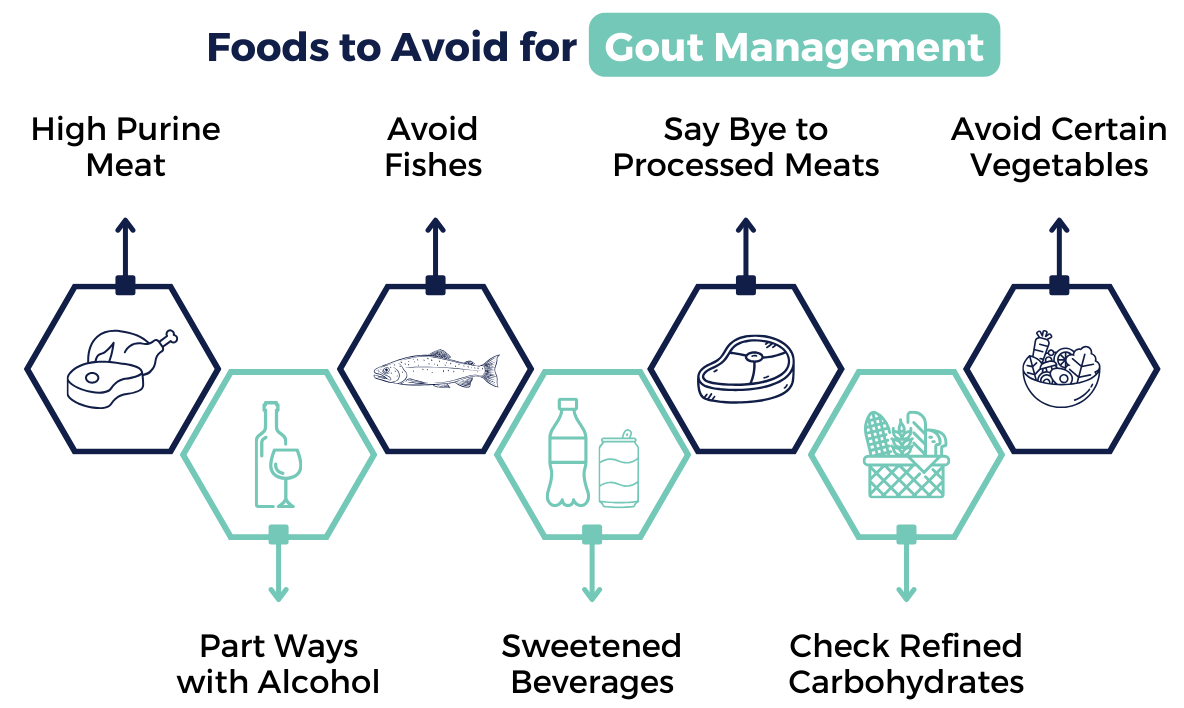Navigating the Waters of Gout: A Comprehensive Guide to Gout Diet
2 min read
Introduction:
Gout, a form of inflammatory arthritis, is caused by the buildup of uric acid crystals in the joints. While medication plays a crucial role in managing gout, dietary choices also play a significant role in preventing flare-ups and managing symptoms. In this blog, we’ll explore the principles of a gout diet, offering insights into foods to embrace and those to avoid.
Understanding Gout and Diet:
1. Limit Purine-Rich Foods:
Purines are compounds that break down into uric acid in the body. Therefore, it’s essential for individuals with gout to limit their intake of purine-rich foods. Some high-purine foods include organ meats (liver, kidney), red meat, shellfish, and certain types of fish (sardines, anchovies).
2. Choose Low-Fat Dairy:
Low-fat dairy products like milk, yogurt, and cheese can be beneficial for people with gout. These foods have been associated with a lower risk of gout attacks, possibly due to their ability to help excrete uric acid from the body.
3. Stay Hydrated:
Drinking plenty of water is crucial for gout management. Hydration helps to flush out excess uric acid from the body. Aim for at least 8-10 glasses of water per day, and consider incorporating hydrating foods like cucumbers and watermelon into your diet.
4. Focus on Fruits and Vegetables:
Fruits and vegetables are rich in vitamins, minerals, and antioxidants. While some vegetables contain purines, the overall benefit of their consumption outweighs the potential risk. Cherries, in particular, have been linked to a reduced risk of gout attacks.
5. Moderate Consumption of High-Fructose Foods:
Some studies suggest a link between a high intake of fructose and an increased risk of gout. Limiting the consumption of sugary beverages and foods high in fructose (such as certain fruits and sweetened snacks) may be beneficial.
6. Moderate Alcohol Intake:
Alcohol can increase the production of uric acid and impair its excretion. While moderate alcohol consumption may not pose significant risks, heavy drinking can exacerbate gout symptoms. Beer, in particular, has been associated with an increased risk.
7. Consider Anti-Inflammatory Foods:
Foods with anti-inflammatory properties, such as fatty fish (salmon, mackerel), nuts, and olive oil, may help mitigate the inflammatory aspect of gout. Incorporating these into your diet may contribute to overall gout management.
Conclusion:
Adopting a gout-friendly diet is a proactive and essential step in managing this chronic condition. By making informed choices about the foods you consume, you can help prevent flare-ups and improve your overall quality of life. However, it’s crucial to consult with a healthcare professional or a registered dietitian to tailor dietary recommendations to your specific needs and health status. Remember, a holistic approach, combining medication, lifestyle changes, and a gout-conscious diet, is key to effectively managing this condition.







